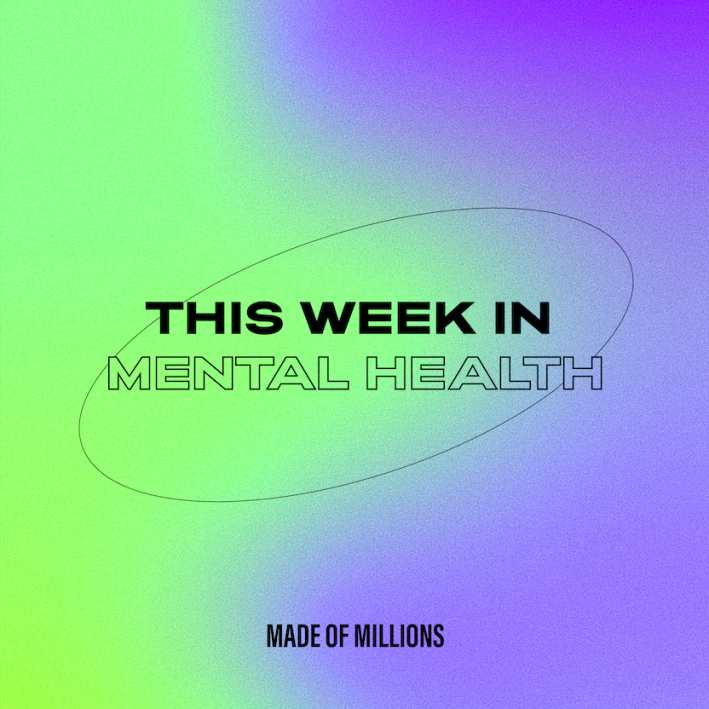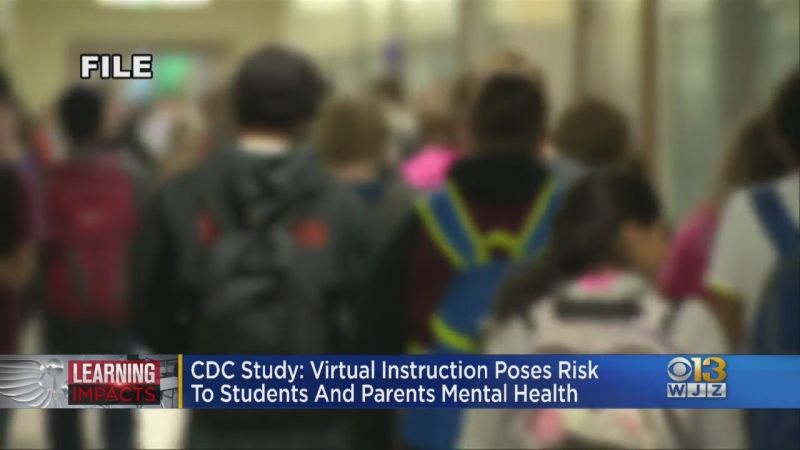This Week in Mental Health
The latest on research and advocacy for the week of March 29th.
Written by Esther Fernandez

01 Research looks at the effects of virtual learning, how MRI scans can help predict treatment outcome, how teens are more likely to develop addiction, and more.
02 MTV launches new mental health initiative and Hailey Bieber opens up about her mental health.
Conversations about mental health have grown exponentially over the last decade, with more and more people committing to personal and collective wellness. While we have a ways to go before mental health awareness, education and treatment are accessible to all, each day brings new and positive strides within the field.
Our This Week In Mental Health series covers the latest happenings in research, treatment, human interest stories, and more. Stay updated on new developments so you’re better equipped to navigate the world, and most importantly, your own recovery.
Here’s what’s happening the week of March 29th.
Research
Soothing Nature Sounds Can Improve Mental Health
Colorado State University released a study that suggests sounds of nature can help improve mental health. Researchers analyzed recordings of over 60 national parks, and found that nature sounds can help with decreasing pain, lowering stress, improving mood, and enhancing cognitive functions. They are also working with the National Park Service to help with preserving national parks so more people can enjoy their benefits.
OCD Patients With Comorbidities Respond Well To Deep Brain Stimulation
A new study found that participants with OCD, who also have comorbidities, respond well to deep brain stimulation. Although studies in the past have looked at DBS for people with OCD, there has been minimal research about people with OCD and comorbidities. Researchers say having comorbidities is more common than just having OCD, so it’s important to look into treatment that can benefit the majority.
Virtual School Can Be Damaging To Children's Mental Health
A new study from the CDC shows that children who do virtual learning have increased risks in mental wellbeing, along with their parents. About one in four parents who had children doing virtual or hybrid learning reported their child had worsened mental health. It was also more likely for non-White parents to have their children in virtual learning. The study looked at responses from 1,290 parents who took surveys in October and November of last year.

Virtual School Can Be Damaging To Children's Mental Health
Depression Affects Visual Perception
The University of Helsinki released a study that found people with depression have different visual perception of images. From these results, researchers suggest the importance of using these types of visual tests to understand changes in information processing and to assess the effectiveness of therapies. However, researchers point out these tests cannot be used to identify depression.
Brain Imaging May Predict Treatment Outcomes For Adolescents With Anxiety Disorders
Researchers from the University of Cincinnati found that MRI scans could predict with about 80% accuracy the effectiveness of medication. The study looked at 41 adolescents who were taking escitalopram, a type of SSRI. The brain imaging was able to look at effectiveness after two weeks of treatment, compared to the usual six to eight.
Study Looks At Effectiveness Of Telehealth Therapy During Pandemic
A new study from Tulane University showed that telehealth therapy can help clients improve their engagement, lessen their symptoms, and reduce hospitalizations. Researchers suggest that the effectiveness of telehealth services could be due to eliminating the barrier of poverty and limited public transportation, as well as clinicians being able to have a more in-depth understanding of their patients when they’re at home. The study looked at telehealth effectiveness during the beginning of the pandemic in March of last year.
Researchers Hone In On Emotion Regulation Difficulties Among Patients With Borderline Personality Disorder
Researchers found that people with borderline personality disorder may have less emotional regulation, mindfulness, and self-compassion. The study looked at survey results from 59 participants with BPD and 70 control participants. Those with BPD were more likely to experience maladaptive strategies like ruminating and being unable to put events into perspective. They are also more likely to be judgmental of themselves. Researchers suggest the importance of mindfulness and therapies that can help with emotions and self compassion.
Teens More Likely To Develop Addiction
A new study from the National Institute on Drug Abuse found that teenagers are more likely to struggle with drug addiction than adults. Compared to those over the age of 18, teenagers were more likely to be addicted to substances like cannabis, opioids, stimulants, and tranquilizers. Researchers urge the importance of screening and proper education.
Advocacy
Hailey Bieber: Justin Bieber 'Helped' Me Fight Internet Trolls
Hailey Bieber recently opened up about her mental health in a Youtube video with psychiatrist Dr. Jessica Clemons. In the conversation, she discusses dealing with hate on social media, in particular when it comes to comparison. She mentions that her husband, Justin Bieber, has been able to help her deal with the struggles of fame and cyberbullying.

The Truth About Mental Health & Social Media
MTV Entertainment Launches Initiative To Boost Accurate, Positive On-Screen Portrayals Of Mental Health Conditions
MTV announced that it will be launching a multi-year initiative that will focus on mental health. The company said that they will double storylines about mental health and ensure that all of their shows portray them in an accurate way. They are also committing to training their employees.
Support our work
We’re on a mission to change how the world perceives mental health.



















